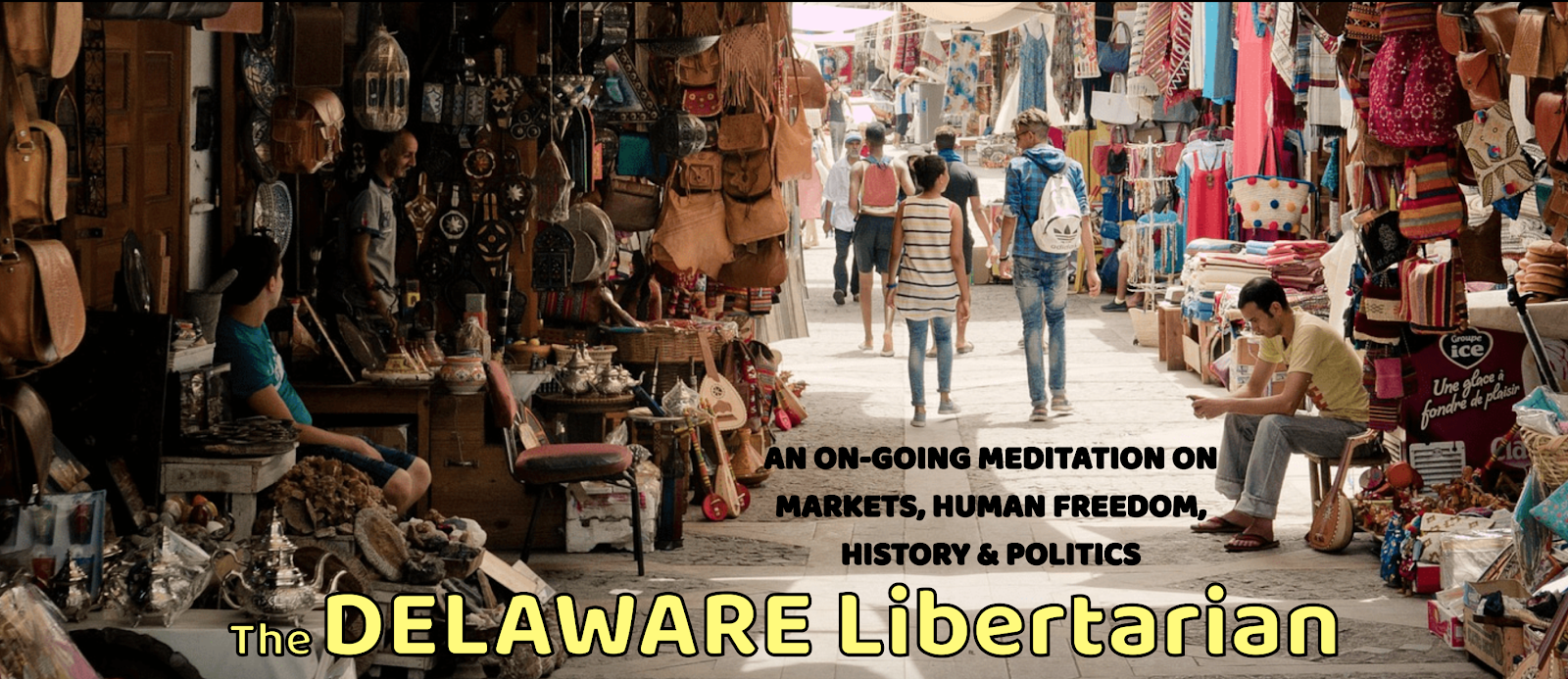Jeffrey Miron of Harvard takes on the proposition that Libertarian economics have been proven a failure by the Great Meltdown:
What's most interesting about the piece, however, is his description of how Libertarian Land would have differed, in financial terms, from the last century of American history:
It takes both imagination and nerve to think like a Libertarian, but it's worth it.
[h/t Waldo]
Reasonable people can debate whether consistent pursuit of libertarian policies would have improved U.S. economic performance over the past two centuries. They cannot claim, however, that recent events demonstrate the failure of libertarian policies, since those policies have not been employed.
What's most interesting about the piece, however, is his description of how Libertarian Land would have differed, in financial terms, from the last century of American history:
In Libertarian Land, banks would not be chartered, defined, and regulated by government, as they have been in the U.S. for over 150 years. In particular, banks would have the right to "suspend convertibility," meaning they could tell depositors, "Sorry, you can't have all your money back right now," during banks runs that threatened bank solvency. This is precisely what banks did in key financial panics during the pre-Fed period, when suspension was illegal but tolerated or encouraged by regulators. By so doing, banks reduced the spread of panics and solvent but illiquid banks did not fail in large numbers.
In Libertarian Land, the Federal Reserve would never have been created. This means the Fed could not have turned a normal recession into the Great Depression by failing to stem a huge decline in the money supply. This decline and the related bank failures occurred because the Fed's existence was taken as indication that banks could not, or should not, suspend convertibility, as they had done successfully in the past. Thus in Libertarian Land, the Great Depression would probably not have occurred.
If the Fed had never been created, Alan Greenspan would never have been its chairman. Thus he would not have given investors inappropriate assurances about the riskiness of derivatives or the long-term viability of the stock market boom of the mid-1990s. Absent the Fed, no Alan Greenspan would have kept interest rates low for an extended period and thereby fueled the housing bubble that has played a key role in turmoil of the past two years. Market participants would have made judgments on their own, and these would plausibly have been more cautious as a result.
In Libertarian Land, the Securities and Exchange Commission, along with financial market regulation such as capital requirements, would not exist. This means investors would have no assurance that government can keep "excessively" risky or fraudulent securities out of the marketplace. Many small investors would stay on the sidelines, leaving the risky investing to those who could afford to lose.
In Libertarian Land, government would not promote increased home ownership, so it would not have created Fannie Mae and Freddie Mac, or encouraged these institutions to extend subprime loans, or implicitly promised to bail them out if or when these loans failed. Thus a key ingredient in the recent financial turbulence would not have arisen.
In Libertarian Land, government would not protect private agents from the downsides of their risky decisions. This means no rescues or bailouts for banks, airlines, or car companies. No deposit insurance, no pension benefit guarantees, and so on.
In Libertarian Land, individuals and businesses would take risks, but they would think long and hard about these risks. Some individuals and businesses would profit handsomely from smart risk-taking, but many would earn modest returns on average because their seemingly "excessive" returns in good times would be balanced by big losses in bad times.
It takes both imagination and nerve to think like a Libertarian, but it's worth it.
[h/t Waldo]

Comments